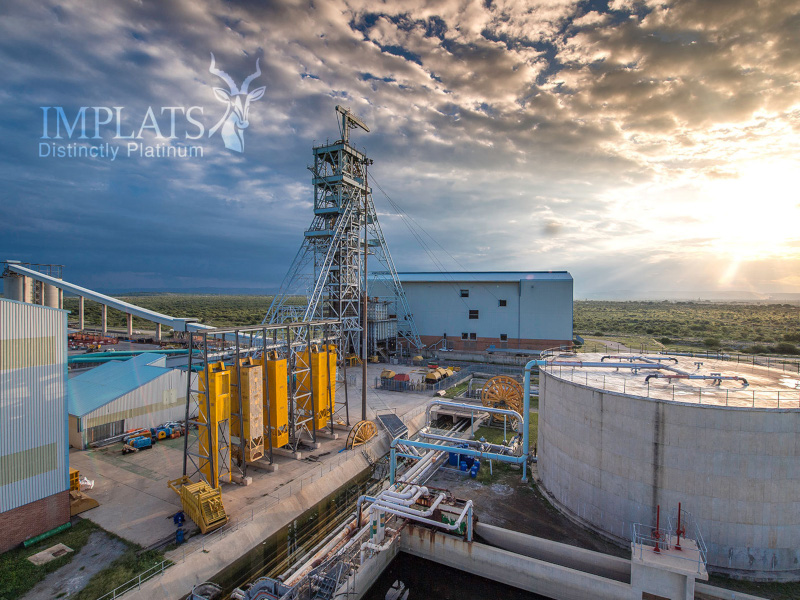Mimosa invests US$75m in TSF4
Mimosa Mining Company has allocated about US$75 million towards enhancing its Tailings Storage Facility 4 (TSF4).
Tailings storage facilities are engineered structures designed to securely store by-products of the mining process, reducing environmental impact and ensuring the safe disposal of waste materials.
The TSF4 — which is a cutting-edge infrastructure, is now at 90 percent completion and is poised for commissioning in April next year.
Unlike Tailings Storage Facility 3, TSF4 boasts advancements designed to meet future demands. With a deposition rate of 233ktpm, TSF4 is constructed to extend its operational life until 2044.
This forward-looking approach aligns with Mimosa’s commitment to longevity, efficiency and environmental stewardship in platinum mining.
Beyond the mine, the importance of TSF lies in its role as a critical element in responsible mining practices.
Mimosa’s investment in TSF4 underscores the mining industry’s ongoing efforts to balance productivity with environmental sustainability.
Mimosa general manager Mr Stephen Ndiyamba recently told journalists during a media tour that the company is committed to sustaining investments in the country, fostering mutually beneficial relationships and leaving enduring legacies.
“The other project is the construction of a new Tailings Storage Facility (TSF4) at a cost of US$75 million. As part of Mimosa’s strategic initiative and commitment towards environmental sustainability, and responsible disposal of waste, construction of a new 165-hectare clay lined tailings storage facility is underway to replace the existing facility which is nearing the end of its life,” he said.
Mr Ndiyamba said the new facility is designed to handle mine waste materials or tailings for the next 20 years and takes into account any future expansions the mine may embark on.
“The company will also construct a 1,1 million cubic metre water containment facility (dam) that will provide a source of water and is expected to change the livelihoods of the communities around the mine. We have also started introducing wildlife in that area to benefit the locals as well,” he said.
Mr Ndiyamba said the construction phase has employed 385 people with most of the general hands being employed from the local community.
“The project is now at 90 percent completion and will be commissioned in April 2024,” he said.
In light of the depressed PGM global prices and their impact on operations, Mr Ndiyamba said the company has taken cost containment measures to safeguard viability.
“As a result, we have made a decision not to embark on the North Hill project. For now, our focus is on optimising our operations at South Hill to ensure that we navigate through this phase of low metal prices,” he said.
Mr Ndiyamba said Mimosa remains committed to investments in Zimbabwe and in particular building mutually beneficial relationships that create lasting legacies.
Recognising the finite nature of the resources extracted, the company has demonstrated significant investment in local communities over the years, spanning health, education, water and sanitation, infrastructure and other sustainable projects.
“We understand that the resources we mine are finite, so we have invested significantly in the local community. Over the years we have invested in health, education, water and sanitation, infrastructure and other sustainable projects.
“Guided by a desire to create lasting legacies, recently we have been gravitating towards sustainable projects with an impact in the community. Envisioning a healthy nation, we have intervened to construct, equip and refurbish health institutions within the community, in the region and at national level,” he said.
Mimosa is the oldest PGM producer in the country with operations that date back to the 1920s.
The company is mining and processing 2,8 million tonnes of ore to produce 120 000 ounces of platinum or 240 000 ounces of 4Es (Platinum, Palladium, Rhodium, Gold) annually.
“We produce a concentrate that contains a total of ten metals (platinum, gold, palladium, rhodium, ruthenium, iridium, nickel, copper, cobalt, silver). The mine is performing well on the safety and production fronts.
“Our challenge is that of depressed metal prices which has an impact on operations and ability to implement planned projects,” said Mr Ndiyamba.-chroicle









